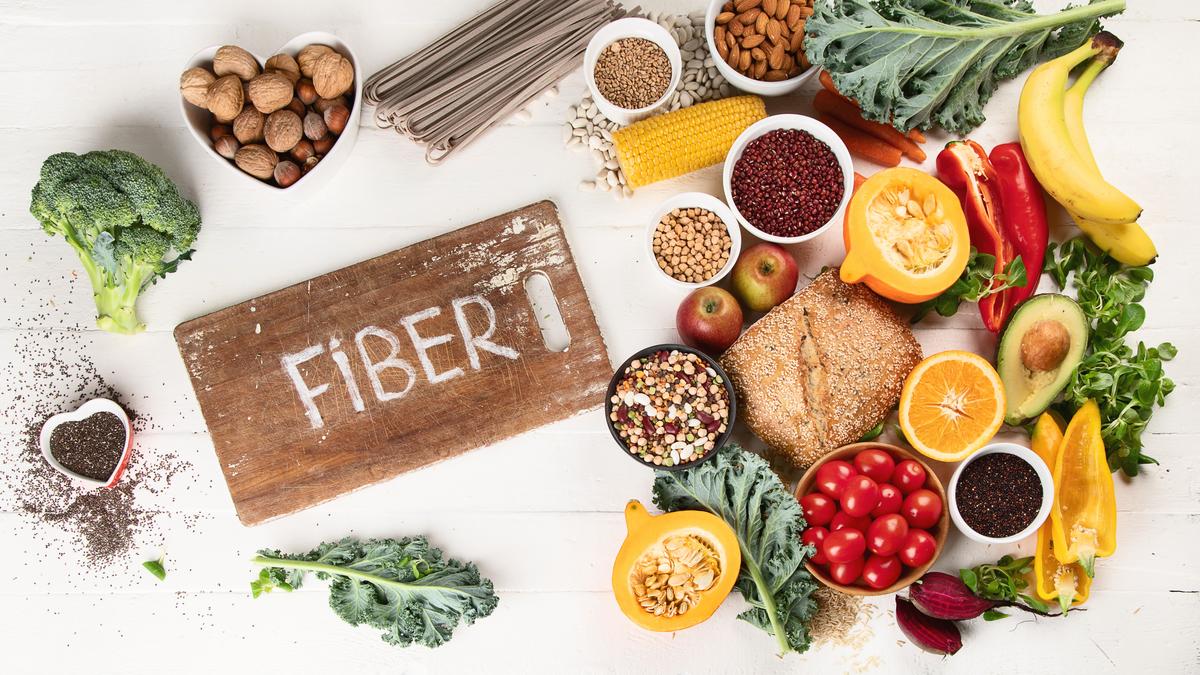
Beat the Blues with your plate: Can a fibre-rich diet fight depression? Premium
The Hindu
Feeling down? What is on your plate might be playing a bigger role in your mood than you think.
Feeling down? What is on your plate might be playing a bigger role in your mood than you think. Depression is a growing concern in India, and while therapy and medication are essential tools for treatment, emerging research confirms that food profoundly impacts mental well-being.
A recent meta-analysis of 18 studies, published in the journal Nutritional Neuroscience, found that a high-fibre diet significantly reduces the odds of depression, with five times greater benefits for adolescents than adults. A team of researchers led by Faezeh Saghafian from the Department of Community Nutrition, School of Nutritional Sciences and Dietetics at the University of Medical Sciences in Tehran, Iran, conducted a systematic search of electronic databases, up to May 2021.
Data from 18 publications (12 cross-sectional, five cohort and one case–control studies) on dietary fibre consumption in relation to depression or anxiety were included. For depression, 15 studies were conducted on adults and three others on adolescents. The review concluded that high intake of dietary fibre was protectively associated with depression in adults, in a dose–response fashion.
The study showed that the total dietary fibre intake was associated with a 10% lower odds of depression in adults and a 57% lower odds in adolescents. Dose–response meta-analysis revealed an inverse linear association between total dietary fibre intake and odds of depression in adults; such that each 5-g increase in total dietary fibre intake was associated with a 5% reduction in risk of depression.
An inverse significant association was observed between intake of fibre from vegetables and soluble fibre and odds of depression. However, cereal fibre, fibre from fruits and insoluble fibre were marginally associated with a reduction in depression, according to the study.
According to the 2016 National Mental Health Survey one in every 20 people in India suffer from depression. Conducted by the NIMHANS, depression was reported to be higher in women in the 40 to 49 age group and among those residing in metros. Equally high rates were reported from among the elderly with 3.5% of the population affected. The survey, conducted in 12 States, said that common mental disorders that include depression, anxiety and substance use are a huge burden on society affecting nearly 10% of the population.
Hemant Bhargav, Associate Professor of Integrative Medicine at NIMHANS, said with depression on the rise in India, especially in adolescents, it is time to harness the power of the Indian diet, naturally abundant in fibre.

On December 23, the newly elected office bearers of the Anna Nagar Towers Club, led by its president ‘Purasai’ B. Ranganathan, who is a former MLA, met with Tamil Nadu Chief Minister M. K. Stalin and conveyed their greetings. According to a press release, besides, ‘Purasai’ B. Ranganathan, the Anna Nagar Towers Club delegation that met Stalin at Anna Arivalayam, the DMK Party headquarters, included vice-president R. Sivakumar, secretary R. Muralibabu, joint secretary D. Manojkumar, treasurer K. Jayachandran and executive committee members N. D. Avinash, K. Kumar, N. R. Madhurakavi, K. Mohan, U. Niranjan, S. Parthasarathi, K. Rajasekar, S. Rajasekar, M. S. Ramesh, R. Satheesh, N. C. Venkatesan and K. Yuvaraj. Karthik Mohan, deputy secretary of DMK’s Information Technology Wing, was present on the occasion.












